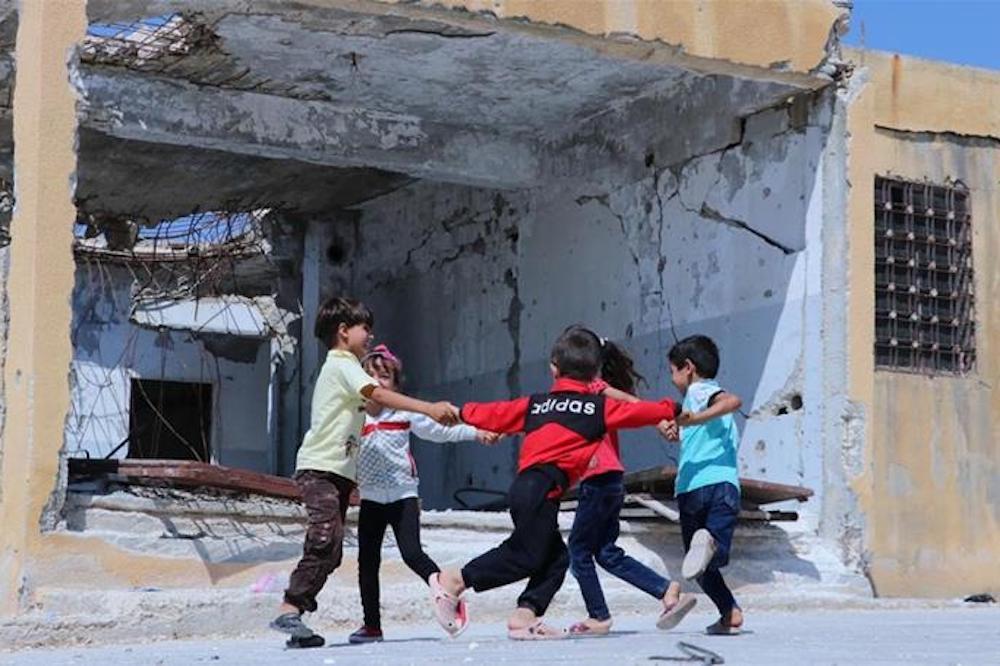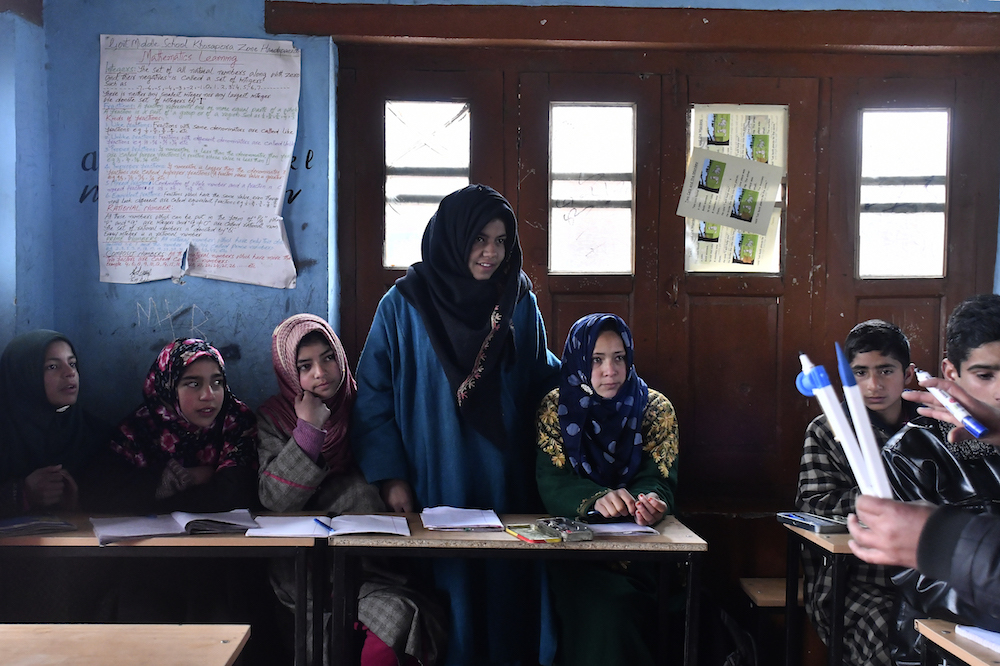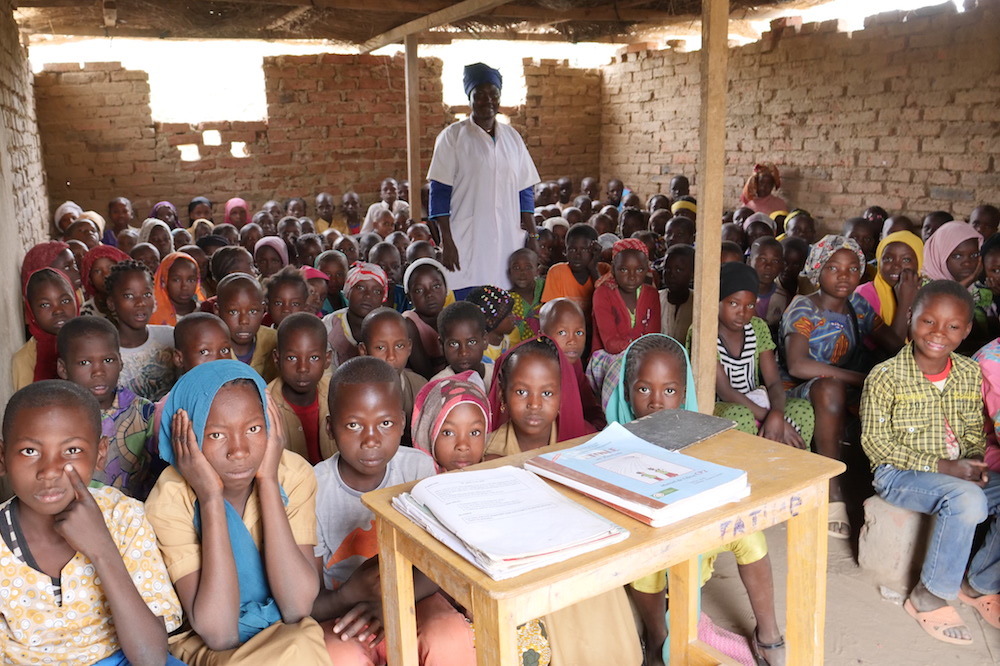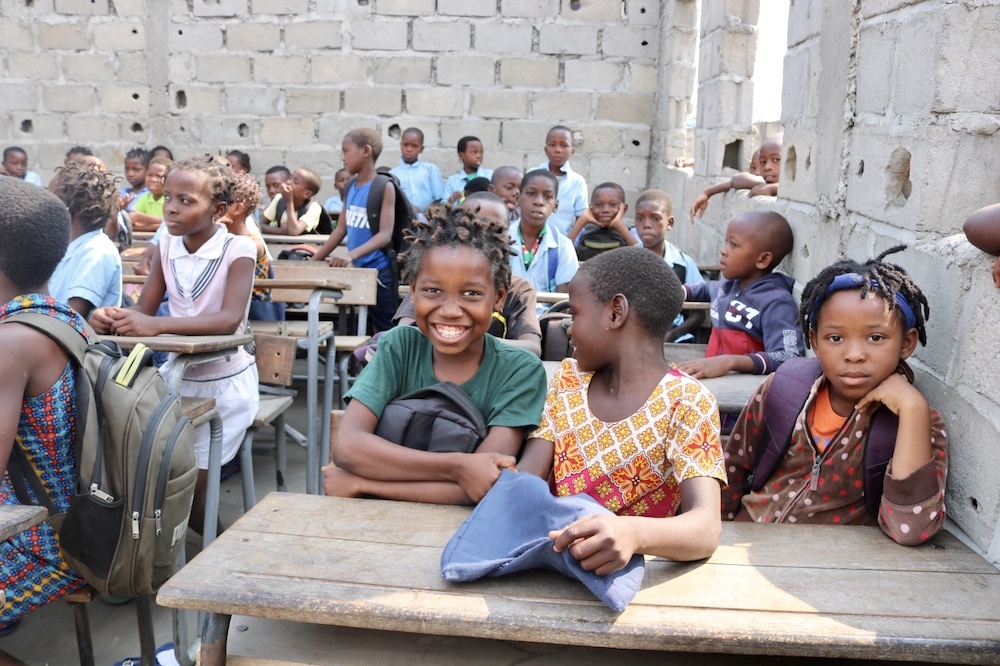
Five things you need to know this week about global education

Children in conflicts, Education in emergencies, Girls' education, Refugees and internally displaced people, Safe schools
A tragic day in Syrian schools, a return to classrooms for millions in Kashmir and Mozambique - and the football star who's now an ambassador for refugee education.
Student and teachers killed as 10 Syrian schools are attacked in one day
Ten schools were attacked in a single day in the Syrian city of Idlib – killing one student, three teachers and six other civilians. The shelling also injured dozens of children and at least seven teachers.
Most of the attacks happened during school hours on Tuesday. In some, classes were being held, while others were being used as shelters. It takes the total number of attacks on schools this year in Idlib to 22.
Reports said the girl who died was killed as she left her school, which was directly hit.
Save the Children spoke to someone who saw some of the attacks. They said: “School hours in Idlib are ‘emergency attendance’. It usually starts at 7:30am and ends at 10:30am because of the intense shelling near Idlib and our fear of something happening in the city.
“Today around 9am we were shocked with sudden shelling that directly hit schools. At one school which was badly hit, many were injured and others were killed. A science teacher was killed and six of his colleagues were injured.
“In another some students were injured. Two teachers and a student were also killed on their way back from school after school was dismissed”.
8 schools and kindergartens were deliberately targeted today by the regime’s warplanes and rockets loaded with cluster bombs. 21 people were killed, including teachers. Are school children and teachers the threat the regime and Russia must rid #Syria of?! pic.twitter.com/8m6jdOTGlo
— The White Helmets (@SyriaCivilDef) February 26, 2020
Sonia Khush, Save the Children’s Syria Response Director said: “Schools must be safe havens for children, even in a conflict zone. The attacks are another sign that fighting in North West Syria has reached catastrophic levels of violence against children and civilians which go far beyond what is acceptable in conflict.
“Nowhere is safe, not even school. We call on all warring parties to ensure that children and civilians – along with the schools and hospitals they need to learn and stay alive – are off limits and protected.”
Heba Morayef, Amnesty International’s Middle East Director, said: “Schools should be safe places for children to learn and play, even in a conflict zone. Targeting schools and kindergartens is a war crime.”
More than 100 countries have signed the Safe Schools Declaration – a commitment to protect schools from attacks and military occupation. Syria is not one of them.
During 2019, there were at least 157 attacks on Syrian schools. 85% were in Idlib and 76% were by airstrike or shelling, according to the Education Cluster in Syria – a collection of NGOs, UN agencies, academics and other partners.
Students in Kashmir back at school after months out

Students in Kashmir are finally returning to school (UNICEF / Vishwanathan)
Almost one million children are back at school in Indian-administered Kashmir for the first time since August. Education had been disrupted by a security and communications lockdown in the region and then the three-month winter vacation.
Authorities said an improvement in security and the weather meant schools could reopen.
Student Muskan Yaqoob told Al Jazeera: “I am very happy to be here. At home, there was nothing to do – even concentrating on studies was difficult.”
Schools shut down in August because of unrest over the Indian government’s decision to revoke the region’s autonomy. Authorities twice announced schools were reopening but worried parents kept their children away.
Mohamed Salah becomes ambassador for refugee education
Thrilled to announce football icon @MoSalah as new joint Ambassador of UNHCR + @VodafoneFdn Instant Network Schools programme.
A superb win for refugee kids! ❤️⚽️https://t.co/hrw6DDboYJ— UNHCR, the UN Refugee Agency (@Refugees) February 26, 2020
Liverpool football star Mohamed Salah has become the first Ambassador for Instant Network Schools, which connect refugee and host-country students to a quality digital education.
The programme is preparing to expand into the striker’s home country Egypt for the first time.
Mohamed said: “Instant Network Schools is an important initiative that I am proud to represent which is transforming learning for a generation of young people across sub-Saharan Africa and soon also in my home country, Egypt.”
Instant Network Schools was set up in 2013 by Vodafone Foundation and the United Nations refugee agency UNHCR to give young refugees, host communities and their teachers access to digital learning content and the internet. The programme has benefited more than 86,500 students and 1,000 teachers.
Funding for education improvements in eight countries

A teacher and her students in class in Chad (GPE / Carine Durand)
Almost $350 million in new funding will strengthen education systems and improve children’s access to school and quality learning in Chad, Eritrea, Ghana, Honduras, Somalia, Sudan, Tajikistan and Zanzibar.
The Global Partnership for Education (GPE) has approved new grants totalling $112.79 million, with a further $233.95 million of co-financing from the World Bank’s International Development Association, the Islamic Development Bank and several other partners.
“GPE is proud to continue its support to strengthen partner countries’ education systems,” said Alice Albright, GPE’s Chief Executive Officer. “These eight countries face challenging circumstances but persist in their efforts to ensure that their children can access a good education and acquire the skills needed to contribute to their countries’ development.”
Learning again in the wake of cyclones

Children are back in classes in Mozambique after cyclone Idai (UN Photo)
More than 360,000 children have been helped back into education in Mozambique after Cyclone Idai last year destroyed 600 schools and damaged or destroyed nearly 4,000 classrooms.
The Education Cluster of NGOs, UN agencies and other partners has reported that its Idai response has reached 366,795 children and 6,560 teachers in 660 learning spaces. Over 270 classrooms have also been rehabilitated.
Cyclone Idai struck in March 2019 and killed more than 1,300 people.
The following month, Mozambique was affected by Cyclone Kenneth, which destroyed or damaged almost 500 classrooms. The Education Cluster response to that disaster has reached more than 23,000 children in 84 learning spaces.
More news

